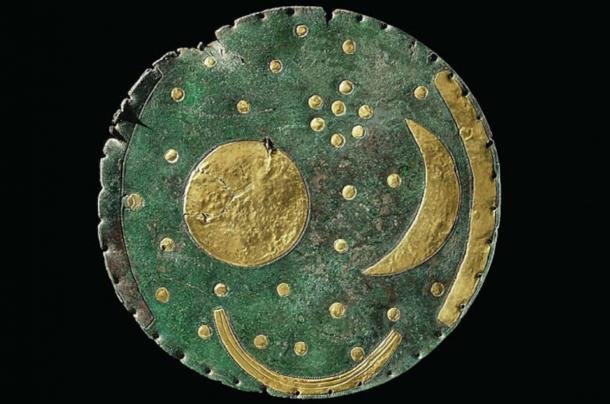
A circle of corroded bronze, measuring 12 inches (30cm) across, adorned with golden shapes, was unwittingly discovered in 1999 in Nebra, Germany, now famously coined the Nebra Sky Disc. More than 3,600-years-old, it is widely considered to be the oldest known depiction of the cosmos. It is currently the subject of a new study, where metallurgical analysis has indicated that it was manufactured using a complex, hot-forging process, with ten cycles of heating up to 700°C!
- Bombshell Study Calls Astronomical Theories of the Nebra Sky Disk “Obsolete”
- Why a Replica of the 3,600-Year-Old Nebra Sky Disk Was Sent into Space

Hardly any suitable scientific method was omitted to study the Nebra hoard. (© State Office for Heritage Management and Archaeology Saxony-Anhalt)
An Elusive Manufacturing Process
Part of the UNESCO “Memory of the World” register since 2013, the Disc is considered one of the best-researched archaeological objects. The new study, published in the latest edition of the journal Scientific Reports, finally points us in the direction of the elusive manufacturing process.






